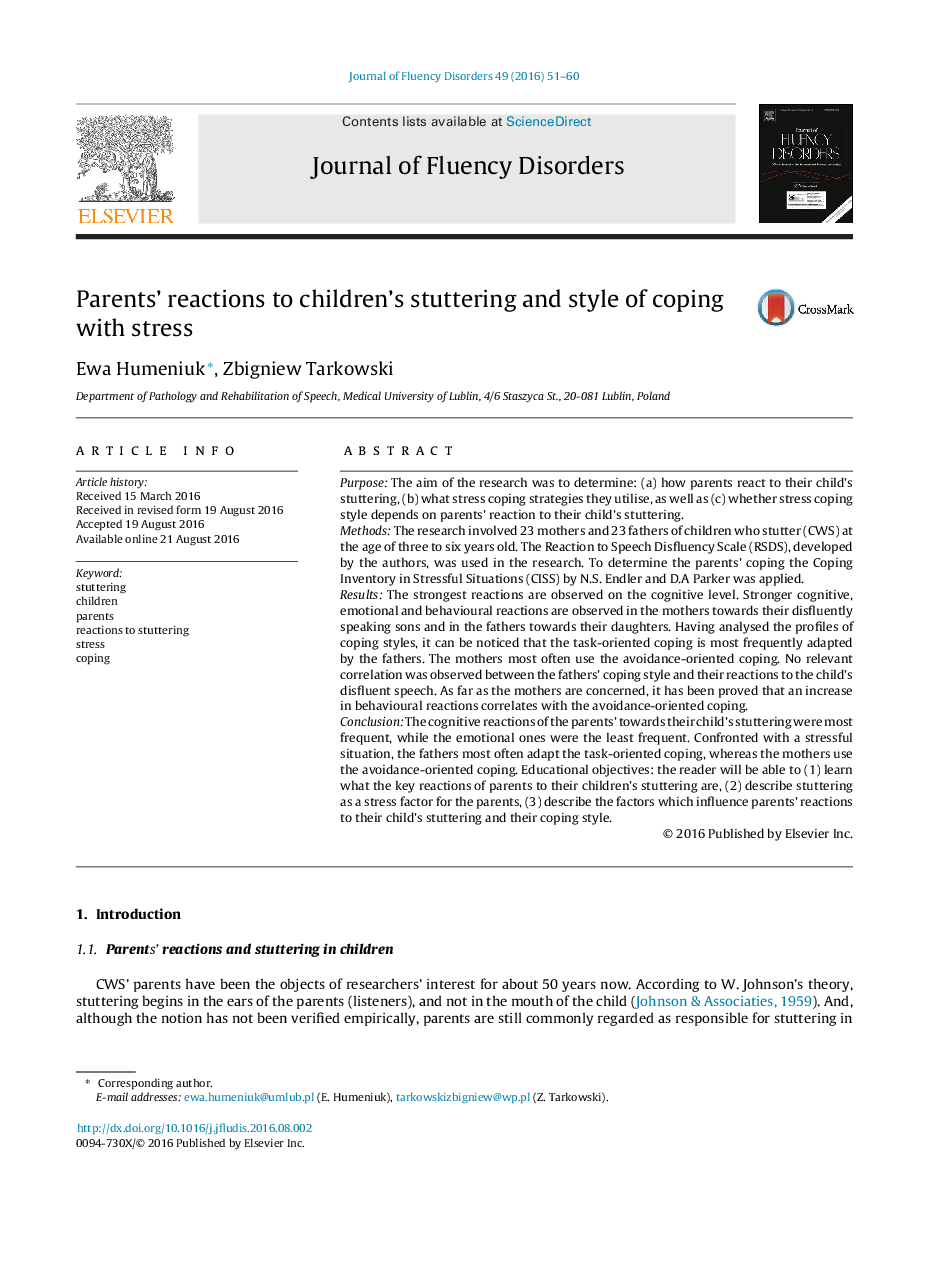| کد مقاله | کد نشریه | سال انتشار | مقاله انگلیسی | نسخه تمام متن |
|---|---|---|---|---|
| 911271 | 1473141 | 2016 | 10 صفحه PDF | دانلود رایگان |
• The strongest parents react to their child’s stuttering were observed on the cognitive level.
• Stronger cognitive, emotional and behavioural reactions are observed in mothers towards disfluently speaking sons and fathers towards daughters.
• Having analyzed the profile of styles of coping with stressful situations, it can be noticed that among fathers the task-focused style is most frequently used, contrary to the avoidance-based one.
• Mothers most often use the avoidance-based style, and most rarely—the task-focused one.
PurposeThe aim of the research was to determine: (a) how parents react to their child’s stuttering, (b) what stress coping strategies they utilise, as well as (c) whether stress coping style depends on parents’ reaction to their child’s stuttering.MethodsThe research involved 23 mothers and 23 fathers of children who stutter (CWS) at the age of three to six years old. The Reaction to Speech Disfluency Scale (RSDS), developed by the authors, was used in the research. To determine the parents’ coping the Coping Inventory in Stressful Situations (CISS) by N.S. Endler and D.A Parker was applied.ResultsThe strongest reactions are observed on the cognitive level. Stronger cognitive, emotional and behavioural reactions are observed in the mothers towards their disfluently speaking sons and in the fathers towards their daughters. Having analysed the profiles of coping styles, it can be noticed that the task-oriented coping is most frequently adapted by the fathers. The mothers most often use the avoidance-oriented coping. No relevant correlation was observed between the fathers’ coping style and their reactions to the child’s disfluent speech. As far as the mothers are concerned, it has been proved that an increase in behavioural reactions correlates with the avoidance-oriented coping.ConclusionThe cognitive reactions of the parents’ towards their child’s stuttering were most frequent, while the emotional ones were the least frequent. Confronted with a stressful situation, the fathers most often adapt the task-oriented coping, whereas the mothers use the avoidance-oriented coping. Educational objectives: the reader will be able to (1) learn what the key reactions of parents to their children’s stuttering are, (2) describe stuttering as a stress factor for the parents, (3) describe the factors which influence parents’ reactions to their child’s stuttering and their coping style.
Journal: Journal of Fluency Disorders - Volume 49, September 2016, Pages 51–60
